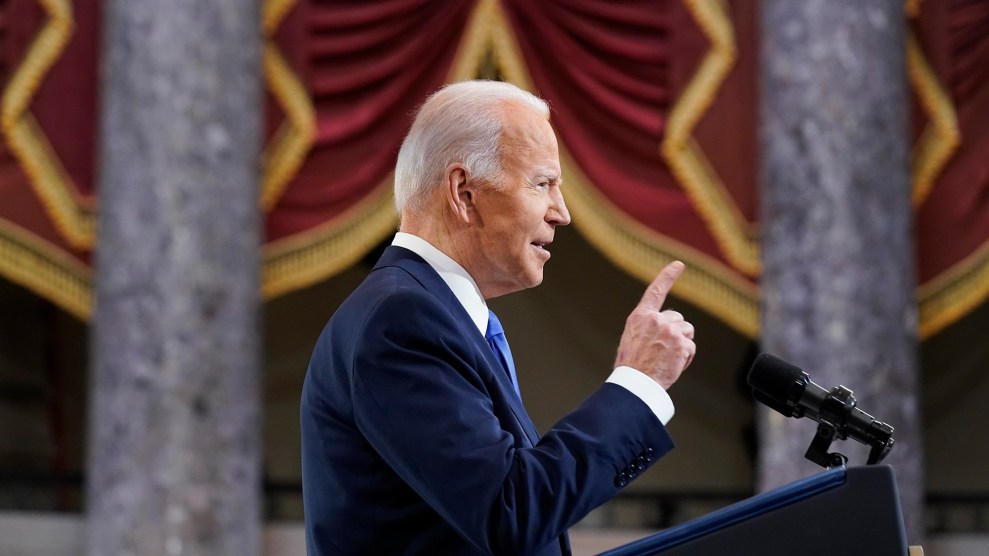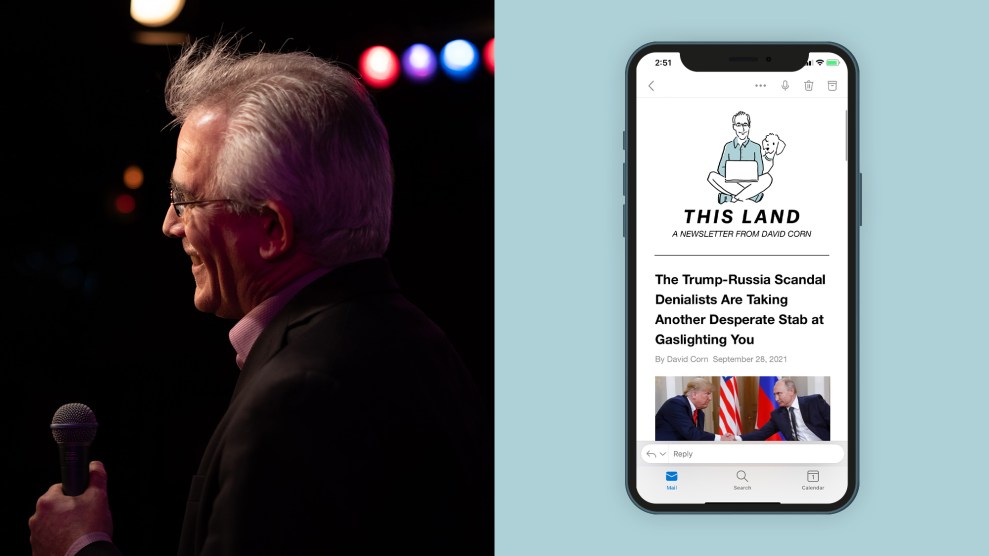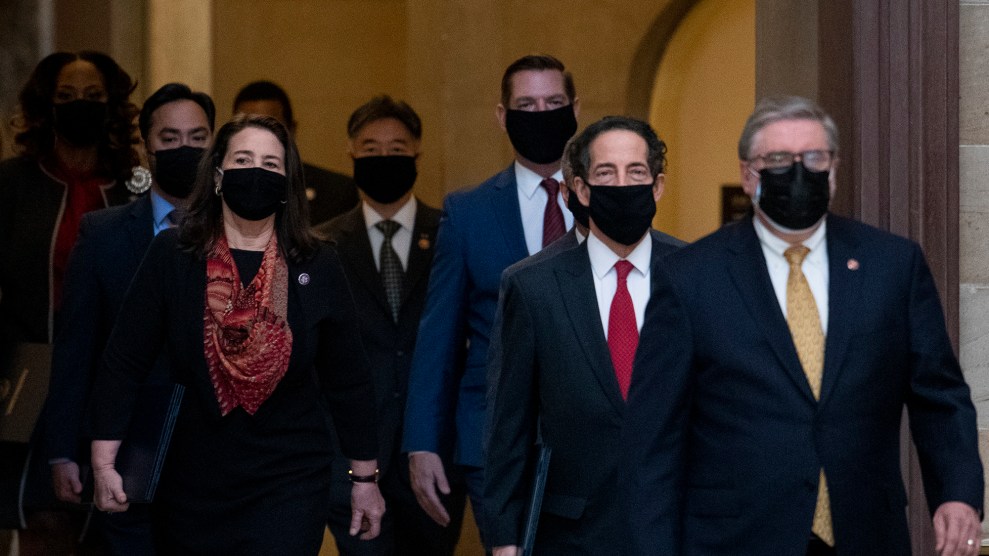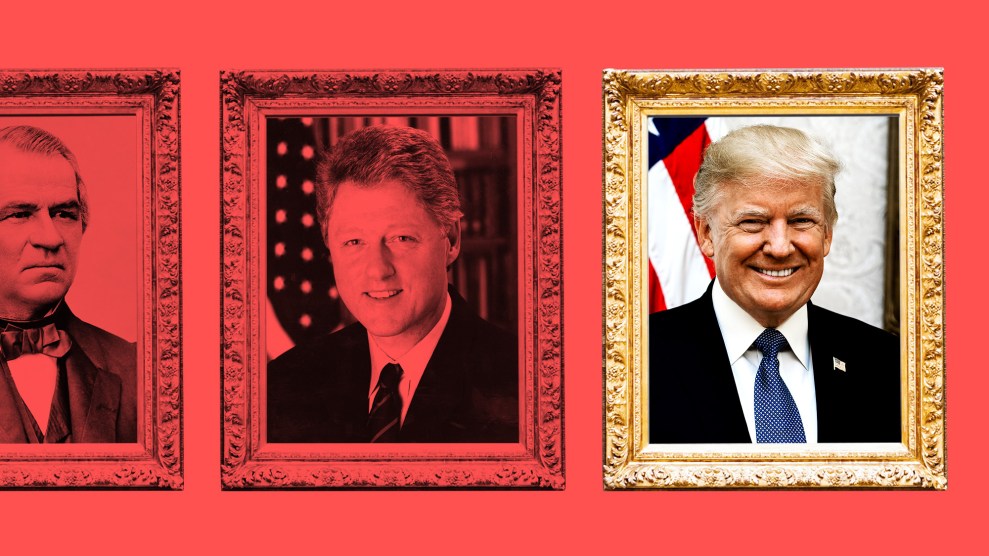Editor’s note: This interview first appeared in Our Land, David Corn’s new newsletter. Our Land is written by David twice a week and provides behind-the-scenes stories about politics and media; his unvarnished take on the events of the day; film, books, television, and music recommendations; interactive audience features; and more. Subscribing costs just $5 a month—but right now you can sign up for a free 30-day trial of Our Land here.
On the last day of 2020, Tommy Raskin, the 25-year-old son of Rep. Jamie Raskin, ended his own life. Days later, Raskin was at the Capitol on January 6, with his daughter Hannah and the husband of his other daughter, Tabitha, for the certification of the electoral vote. The three lived through the harrowing hours, as Trump-inspired insurrectionists attacked Congress and tried to stop the transfer of power. These two traumas were distinct, one personal and intimate, the other with ramifications for an entire nation. Yet for Raskin, his wife, Sarah, and their daughters, these different nightmares were intertwined, each striking at and undermining core assumptions about life and their world. One could be broken by either.
Yet Raskin, amid the deepest grief, took on a weighty assignment: leading the House managers for the second impeachment of Donald Trump. That entailed devising the legal arguments and strategies for the trial in the Senate—and assuming the high-profile role as chief prosecutor. How to do that with the burden of immense suffering? The trial ended in a majority vote for conviction, 57 to 43, with seven Republicans finding Trump guilty, and the other members of the minority party essentially accepting Trump’s betrayal. That was 10 votes shy of the 67 votes required for a conviction but the largest bipartisan vote for an impeachment conviction in US history. Quite an accomplishment for a former constitutional law professor, especially under the horrific personal circumstances.
Raskin has written a poignant, sad, insightful, and compelling memoir of those weeks: Unthinkable: Trauma, Truth, and the Trials of American Democracy. It is a stunning work: a biography of Tommy, an account of one of the worst days in the life of America, and a behind-the-scenes recounting of the effort to hold Trump accountable for his assault on the republic. Tommy, a Harvard law student at the time of his death, was brilliant, creative, empathetic, perceptive, and passionate. I knew him and can attest that he was an unusually excellent human being. (His father and I are friends and neighbors.) Raskin’s depiction of his remarkable son is both inspiring and almost unbearably heartbreaking, given the far-too-soon ending to his story. He writes with gut-wrenching frankness about the depression that Tommy could not escape and his own grief and guilt. He examines the connections between his family’s tragedy and that which befell the nation days later. And with erudition, grace, and disquiet, he examines the present danger to democracy. This is an elegantly crafted and painfully honest book.
A few days ago, Raskin and I discussed Unthinkable, Tommy, and the impeachment. We could have done this while walking our dogs (our regular paths overlap). Instead, we did it online and recorded the chat. I asked how one writes about not one but two unfathomable traumas while still rocked by each. We discussed Trump’s plot to overturn the election results and how close it came to succeeding. And I asked Raskin what critique of the book the always-astute Tommy would have. His candid answer surprised and moved me.
And while I have your attention, let me ask you to also watch the below video of Tommy. From an early age, as Raskin writes, Tommy was an amateur ethicist, obsessed—in a good way—with determining how a human ought to live in this imperfect world. He wrote poems and essays to explore moral questions and advance his own moral vision. (He also did stand-up comedy.) He was a natural-born philosopher. In one essay, he sharply observed, “We may object to Trump’s condescending rhetoric and galling outbursts about so-called shithole countries, but at the end of the day, we share in his general indifference to the preventable horrors that befall many inhabitants of these countries.” He sought to challenge people, especially liberals and progressives comfortable with their assumptions. And he was an avid vegan, eager to press the ethical case for veganism without resorting to self-righteous indignation. One of his most impressive works was a long spoken-word piece called “Where War Begins,” in which Tommy compares the violence humans wage against animals to the violence humans wage against each other. Whether you’re a vegan, vegetarian, pescatarian, or carnivore, check it out. You will see that Tommy’s death is a tremendous loss for us all. His family has established the Tommy Raskin Memorial Fund for People and Animals.
















